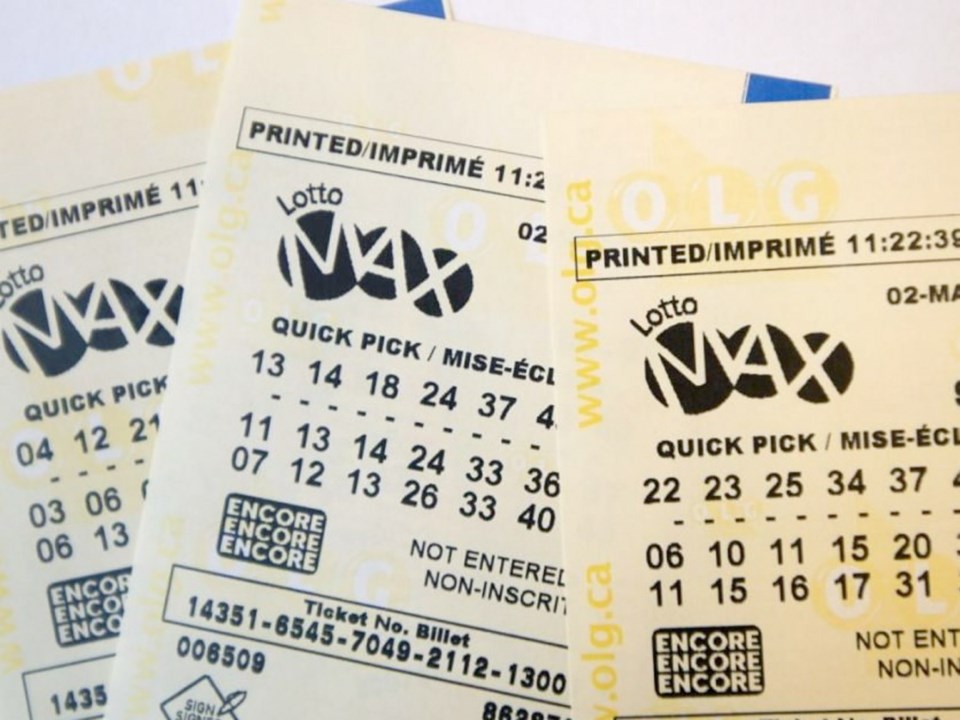Since it began checking up on lottery retailers almost three years ago to see if they’re asking young gamblers for identification, B.C.’s lottery corporation has issued hundreds of warnings to retailers who failed to ask for ID from young-looking customers.
And “mystery shoppers” sent to pretend that they’re customers have found a majority of retailers aren’t asking those who look under age 25 for ID to prove they’re over the legal gambling age of 19.
B.C. Lottery Corp. has issued hundreds of “notification emails” to those who fail the test since it introduced its ID25 policy in August 2016. In the first fiscal year, 2016-17, 1,012 mystery shops were done and 572, or 64 per cent, of retailers failed to ask the customer for ID, according to data from BCLC.
In fiscal year 2017-18, 1,040 mystery shops found 636, or 61 per cent, of retailers failed to ask for ID. And in the 2018-19 fiscal year, 701 mystery shops caught 451, or 56 per cent, of retailers who failed to ask, for a three-year total of 1,659 retailers.
There are 3,500 lottery retailers in B.C., and they process 450 million transactions a year.
BCLC didn’t respond to a question about why it reduced the number of mystery shoppers by 30 per cent for the last fiscal year.
In 2017-18, 580 retailers who failed to ask for ID were sent a notification email, and in the last fiscal year 461 received an email.
Under the rules before April 1, retailers caught a second time were sent a warning letter. In 2017-18, there were none, and last fiscal year, the BCLC sent three. Before April 1, for a third infraction, a retailer would pay an undisclosed “financial remedy” and for a fourth, the retailer’s contract would be terminated.
On April 1, BCLC changed the penalties under ID25. Now, for the first infraction in a 12-month period, the retailer will get a warning ticket and a 15 per cent cut in “conditional payments,” which results in a reduced bonus eligibility. (The cut in conditional payments is effective Jan. 1, 2020.)
For a second infraction in that 12 months, the retailer will receive a second warning letter and a further 15 per cent cut in bonus eligibility.
For a third infraction, the retailer’s contract to sell lottery tickets is suspended for seven days and a fourth means a 14-day suspension, or longer, all the way to termination of the contract.
The infractions under ID25 are by far the worst. The second most-committed infraction last fiscal year was 81 validation issues, where mystery shoppers found retailers didn’t properly validate a returned ticket, such as ensuring that it’s signed, or scanning the bar code.
“We remain committed to enhancing retailer education and training to strengthen compliance with ID25, including through online training courses and ID25 requirements for lottery retailer certification,” said a BCLC spokeswoman in an email.
It’s against the law for minors to gamble in Canada, but a 2018 report by the Canadian Paediatric Society found “adolescents commonly engage in both legalized (lottery products, casino, video-lottery terminals) and self-organized (cards, sports betting, dice) gambling activities both at home and in school.”
The report said: “Lifetime prevalence rates of pathological gambling for adults range from one per cent to two per cent, and existing data suggest that the prevalence among adolescents may be two-to-four-times higher.”
It said the report should warn pediatricians, family doctors and other health-care providers about the “risk factors in the development and perpetuation of problematic and pathological gambling … and the potential serious consequences.”
And the society urged the federal and provincial governments to address the socio-political factors associated with gambling.



